Affiliate links on Android Authority may earn us a commission. Learn more.
Xiaomi Mi Band 4 vs Fitbit Inspire HR: Which fitness tracker should you buy?
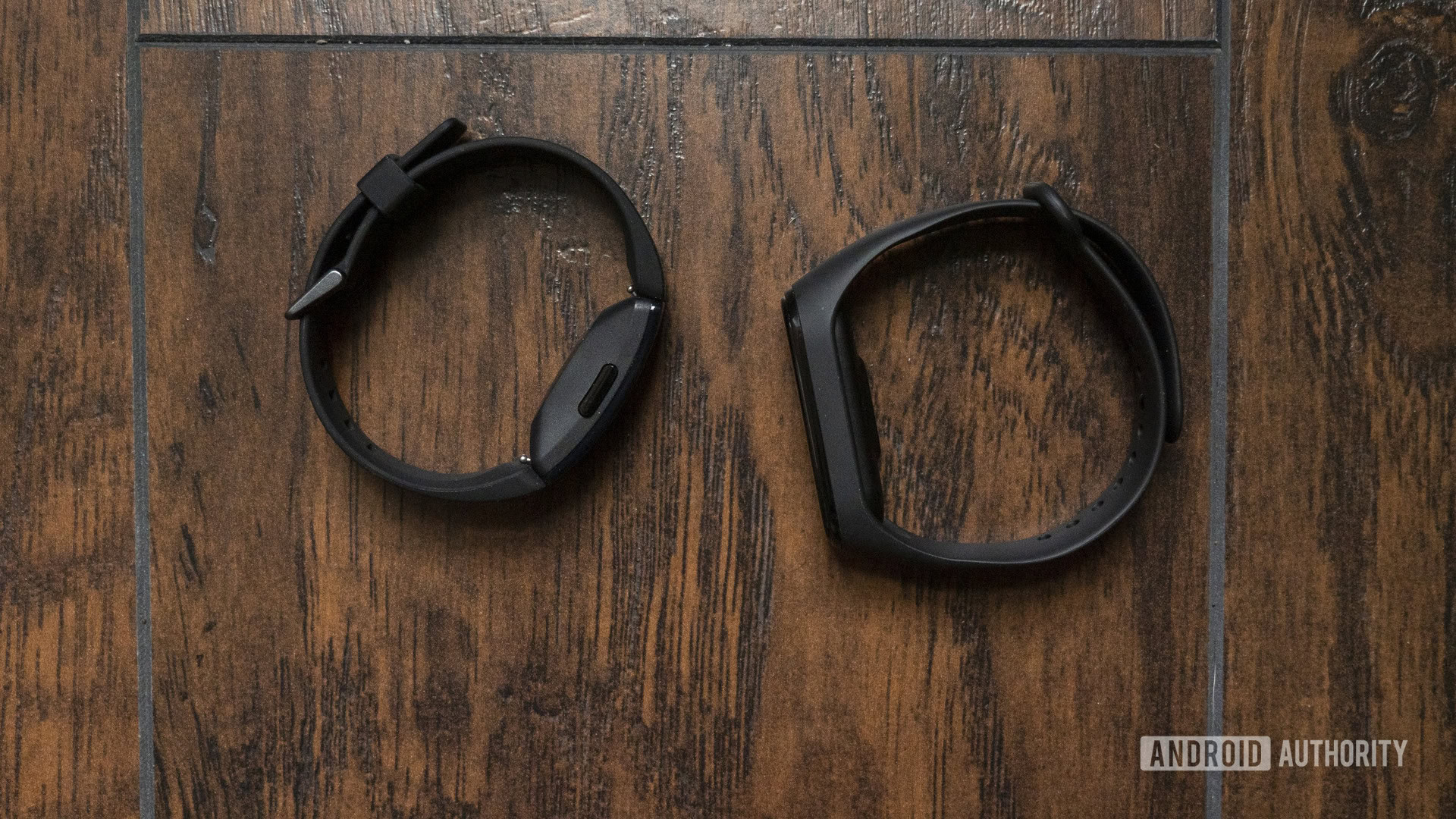
Unless you need more advanced features like built-in GPS, running dynamics stats, or music storage, the Xiaomi Mi Band 4 and Fitbit Inspire HR should both be at the very top of your fitness tracker list. Overall, they’re two great options for anyone looking to keep better track of their daily activity.
Which is the best cheap fitness tracker around? Should you go for the less expensive Mi Band 4 or the more refined Inspire HR? That’s what we’ll help you decide in our Xiaomi Mi Band 4 vs Fitbit Inspire HR comparison.
Xiaomi Mi Band 4 vs Fitbit Inspire HR: Design
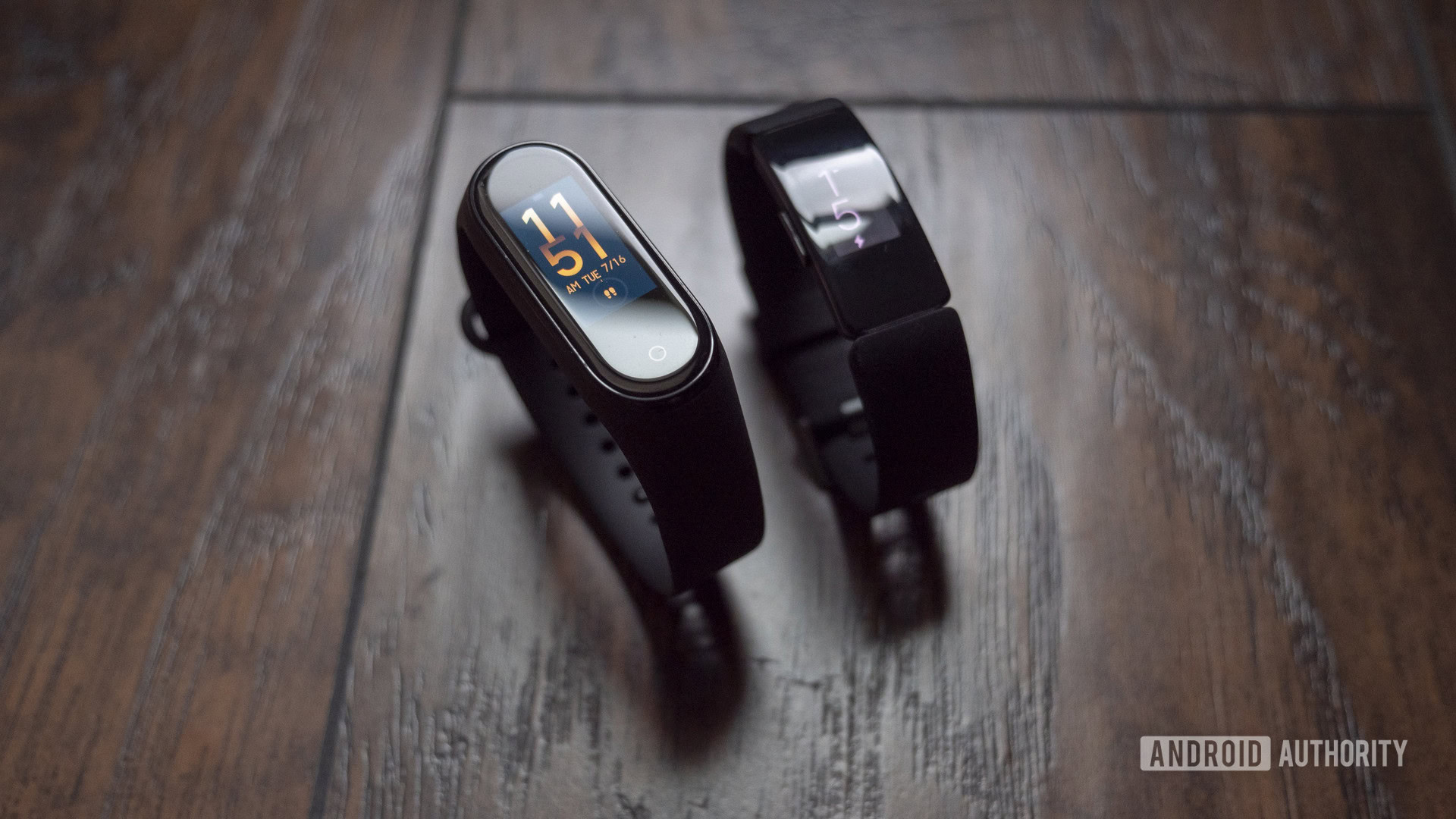
I’ll be honest: I’m not a huge fan of either fitness tracker’s design. Both designs are pretty generic and don’t really look good or bad. They’re just… bleh. If I had to choose one, though, I’d go with the Inspire HR. Fitbit offers plenty of first-party bands for its fitness trackers, so it’s pretty easy to dress the Fitbit up if you want to make it look a bit more original. You can buy replacement bands made with silicone, leather, or stainless steel for the Inspire HR.
Plenty of Mi Band 4 replacement straps are available as well, but you may need to rely on third-party options if you’d like something other than silicone.
While the Inspire HR might look a little better overall, the Mi Band 4’s display is miles better. It’s a 0.95-inch RGB OLED display that’s vibrant and bright enough to see outdoors in direct sunlight. The Inspire HR’s smaller grayscale OLED display is fine, but not nearly on the same level as the Mi Band 4’s.
Both trackers are designed the same way. They feature small cases that detach from the bands. You need to remove the Mi Band 4 from its strap in order to charge it, though, while you can simply stick the Inspire HR to its magnetic charger with the band still on. Whichever device you choose, you’ll have to deal with a terrible charging cable. Both chargers are small and feel cheap.
The good news is you won’t have to charge either device very often. The Mi Band 4 can last up to 20 days on a single charge, and that’s with the heart rate sensor turned on. The Inspire HR lasts up to five days on a charge — not nearly Mi Band 4 level, but still decent compared to other wearables.
Fitness and health tracking
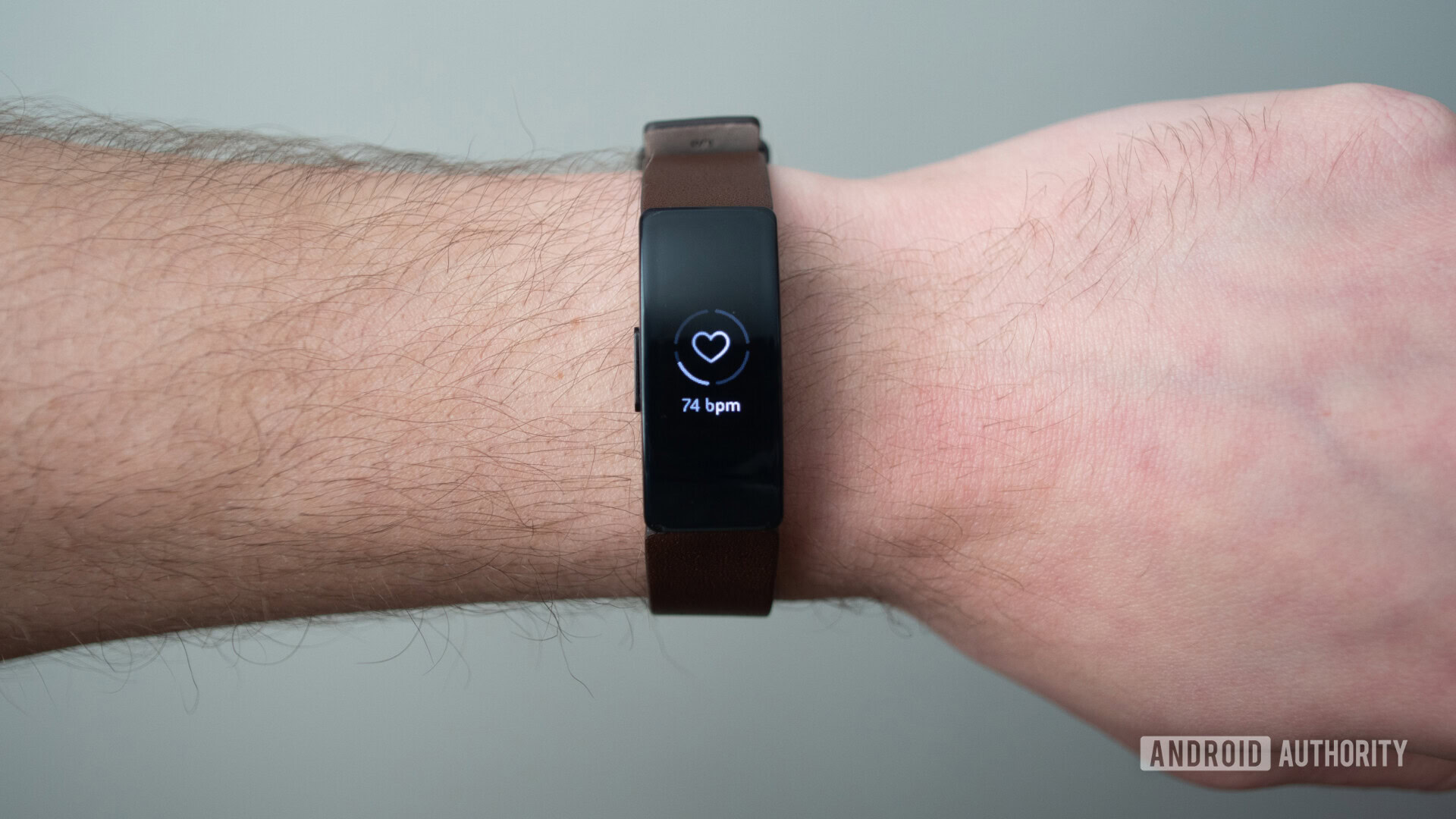
Both the Fitbit Inspire HR and Xiaomi Mi Band 4 will track everything you’d expect from a basic activity tracker: steps taken, calories burned, resting and active heart rates, and sleep. They’ll also track your distance traveled, pace, and cadence, but note that neither device has built-in GPS so these metrics won’t be as accurate as they would be with other GPS-enabled devices. They do, however, come with their respective connected GPS features, meaning they can piggyback off your phone’s GPS if you don’t mind bringing it with you during your exercise.
Neither device has an altimeter, meaning floors climbed metrics won’t be as accurate compared to some other fitness trackers.
Also read: Best GPS running watches | Best heart rate monitors and watches
Throughout my time testing both devices, the Mi Band 4 and Inspire HR both tracked steps taken and calories burned as accurately as one another.
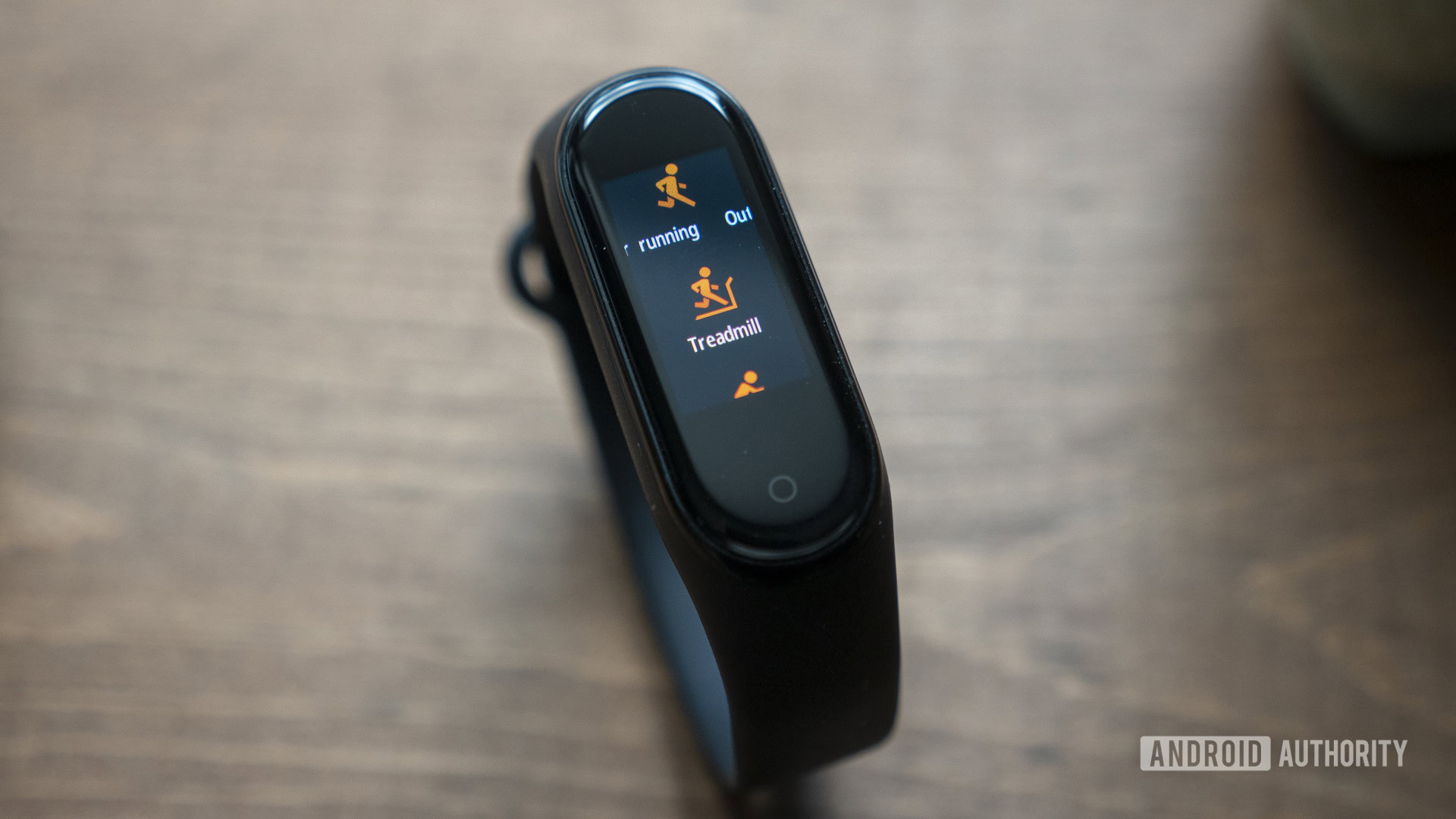
Both devices are able to track a variety of sport profiles, but the Fitbit Inspire HR can track way more. Both are able to track outdoor running, treadmill, cycling, walking, pool swimming, and generic “exercise” workouts. The Inspire HR can track additional activities like weights, interval workouts, tennis, elliptical, hiking, golf, and many more activities. If you find yourself wanting to track many different types of workouts, you’ll want to go with the Inspire HR.
The Fitbit device will also give you VO2 Max estimates (Fitbit includes your VO2 Max in your overall Cardio Fitness Score), on-device guided breathing, and more than 15 goal-based exercises like you’ll find on the Fitbit Charge 3. The Inspire HR also features Fitbit’s female health tracking suite, allowing women to record their menstrual cycle details, see how it’s affecting their overall health, and even talk to other women about their experiences.
Speaking of talking to other users, the Fitbit app has one feature that helps it stand out from most other fitness apps. There’s a mini social network built right into the app. Fitbit owners can join groups, post/comment on status updates, and ask for help if they need any assistance. It’s extremely helpful, especially if you’re having an issue and need advice from like-minded people.
Compared to the Fitbit app, Xiaomi's Mi Fit app has some work to do.

Xiaomi’s Mi Fit app is much more basic. It’s well designed and relatively easy to use, but it’s missing many of the things that make the Fitbit app so great. There is a “friends” section of the app, but you need to add friends manually by scanning a QR code. The Mi Band 4 doesn’t offer menstrual cycle tracking, so you won’t find that option in the app either. Mi Fit isn’t a bad app — it’s just not as fully featured as others.
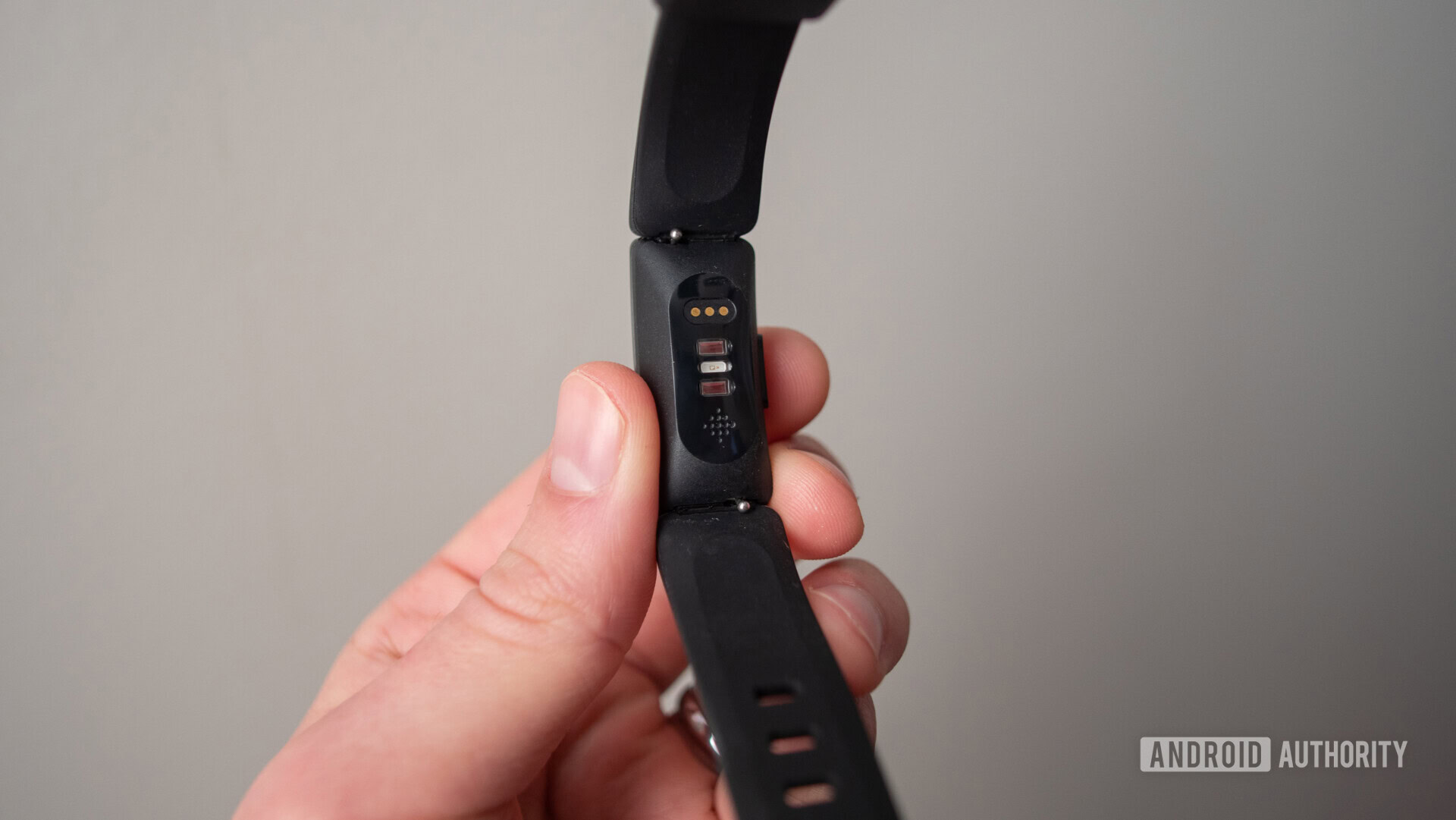
Both the Mi Band 4 and Inspire HR have heart rate sensors, and both are pretty accurate. They won’t rival the accuracy of a chest strap heart rate sensor, but they’re good enough to capture major heart rate trends throughout workouts. I urge you to check out our Mi Band 4 and Inspire HR reviews for more direct comparisons between chest straps and other fitness devices.
Finally, the Mi Band 4 and Inspire HR are both great sleep trackers. They’ll track your light and deep sleep, as well as your overall time awake throughout the night. The Inspire HR will also track REM sleep. Both devices will give you a sleep score based on your sleep quality and compare your stats to other users your age and gender.
| Xiaomi Mi Band 4 | Fitbit Inspire HR | |
|---|---|---|
Display | Xiaomi Mi Band 4 .95-inch RGB AMOLED touchscreen 120 x 240 resolution 282ppi Up to 400 nits 2.5D tempered glass with anti-fingerprint coating | Fitbit Inspire HR Greyscale OLED touchscreen |
Materials | Xiaomi Mi Band 4 Case: polycarbonate Band: thermoplastic polyurethane | Fitbit Inspire HR Case: plastic Buckle: aluminum Band: flexible, durable elastomer material similar to that used in many sport watches |
Sensors | Xiaomi Mi Band 4 3-axis accelerometer 3-axis gyroscope PPG heart rate sensor Capacitive proximity sensor | Fitbit Inspire HR 3-axis accelerometer Vibration motor Optical heart rate sensor |
Battery | Xiaomi Mi Band 4 Up to 20 days Lithium-polymer Charging time: ≤ two hours | Fitbit Inspire HR Up to five days Lithium-polymer Charging time: Two hours |
Durability | Xiaomi Mi Band 4 5ATM water resistance | Fitbit Inspire HR 5ATM water resistance |
Compatibility | Xiaomi Mi Band 4 Android and iOS | Fitbit Inspire HR Android, iOS, and Windows |
Dimensions and weight | Xiaomi Mi Band 4 Band width: 18mm Band length: 155-216mm 22.1g | Fitbit Inspire HR Case dimensions: 16 x 36.8mm Small: 139.7-180.3mm Large: 180.3-221mm |
Smartwatch features
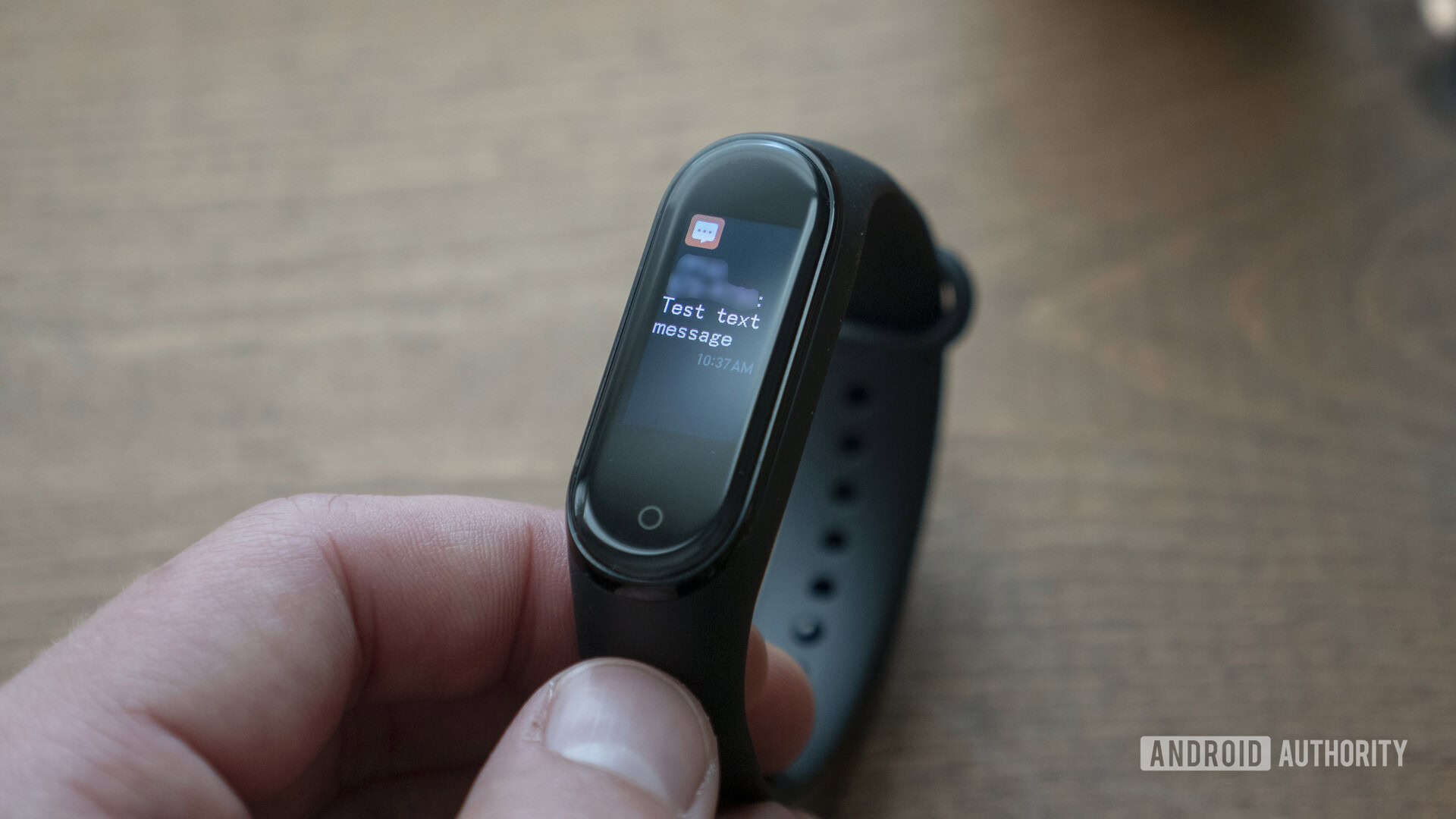
Both the Mi Band 4 and Inspire HR offer basic smartwatch functionality. They both provide app notifications from a paired smartphone, vibration alarms, and different watch faces. Since the Mi Band 4 has a more vibrant and versatile display, the available watch faces are much more fun than the Fitbit’s.
Elsewhere, the Xiaomi Mi Band 4 trounces the Fitbit Inspire HR when it comes to smartwatch features. Xiaomi threw in a ton of little customizations that make the Mi Band 4 feel more personal, while the Inspire HR feels much more basic. The Mi Band 4 lets you set custom vibration patterns for notifications, set a schedule for when the display wakes up, and control music playing on your smartphone. There’s also a night mode that automatically dims the display at a certain time, as well as a “find my band” feature if you ever misplace your Mi Band.
If you live in China, you have access to even more smartwatch features. You can buy a version of the Mi Band 4 with access to contactless payments with Alipay, public transportation payments, as well as Xiaomi’s Xiao AI assistant.
It’s no contest: The Mi Band 4 is the clear winner here.
Xiaomi Mi Band 4 vs Fitbit Inspire HR: The verdict
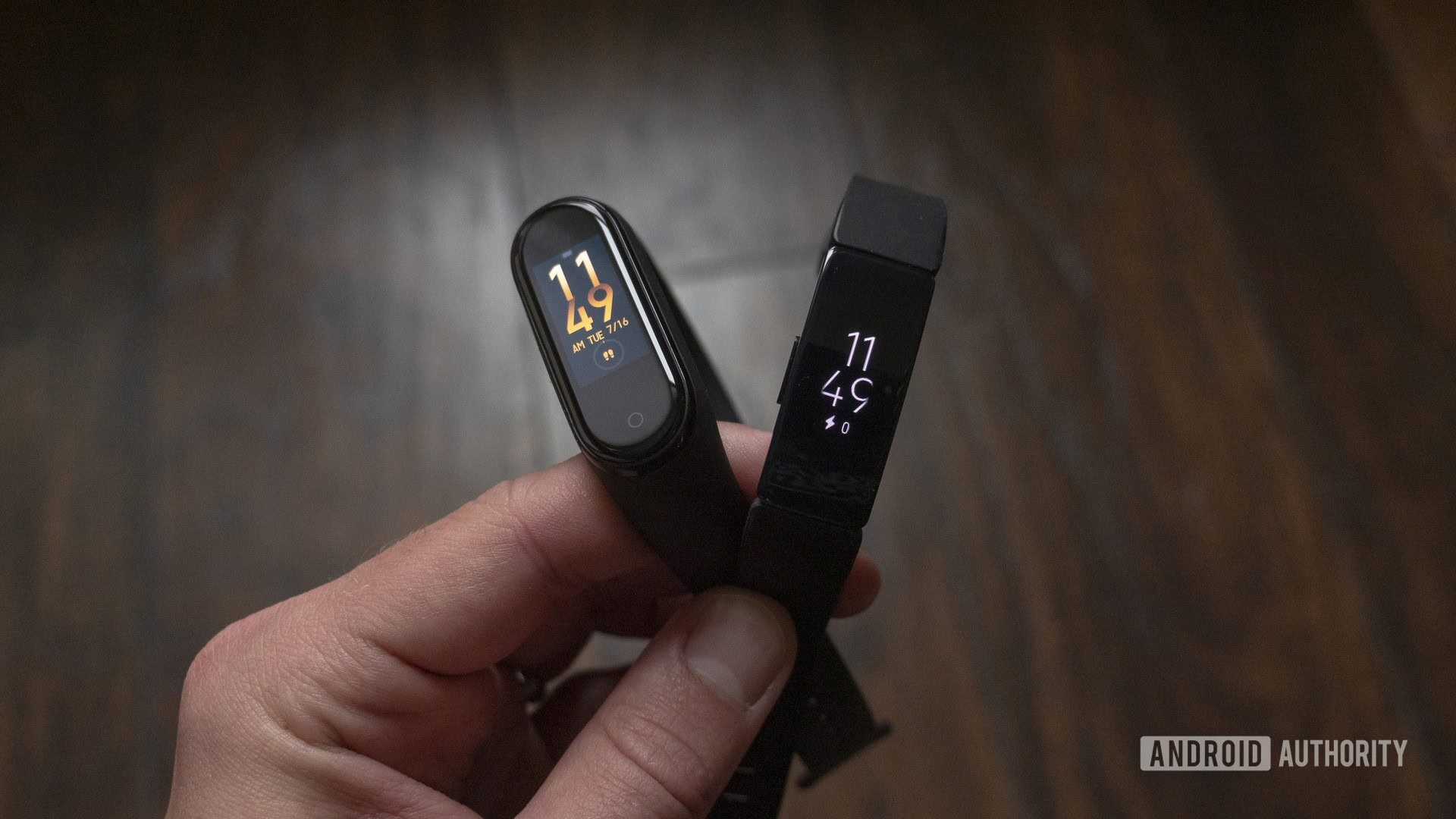
As mentioned, the Xiaomi Mi Band 4 and Fitbit Inspire HR are two of the best, cheapest fitness trackers you can buy. The Mi Band 4 is available on Amazon in the U.S. for just $40, while the Inspire HR is available for $99.95. You can also buy the standard Fitbit Inspire for $69.95, but that model doesn’t come with a heart rate sensor.
Is the Fitbit Inspire HR really worth more than double the price of the Xiaomi Mi Band 4? If I had to give you a definitive answer, I’d say yes, but it barely clears that bar.
Both are fantastic, basic fitness trackers. They’re both accurate, they track plenty of health metrics, and they’re customizable. In most cases, though, I think the Inspire HR comes out on top. It tracks many more activities than the Mi Band, and the Fitbit app is much more polished and feature-rich.
That’s not to say you should run out and buy the Inspire HR right now, though. If budget isn’t a concern and you want an even better device, you should check out the Fitbit Charge 3. It’s on sale all the time, and overall it’s a more fully featured device than the Inspire HR.
For many people, the Inspire HR’s bigger price tag will definitely not be worth it. The Mi Band 4 provides about 85 percent of what you get with the Inspire HR. The features that it’s missing are important, but are by no means a necessity. If you just want to keep better tabs on your daily activity and don’t need a bunch of extra stuff, the Xiaomi Mi Band 4 is the one to get.